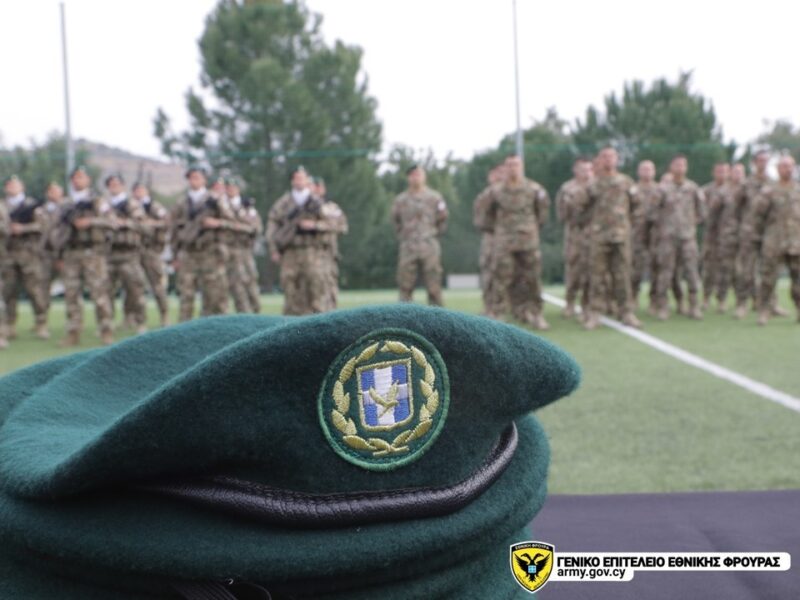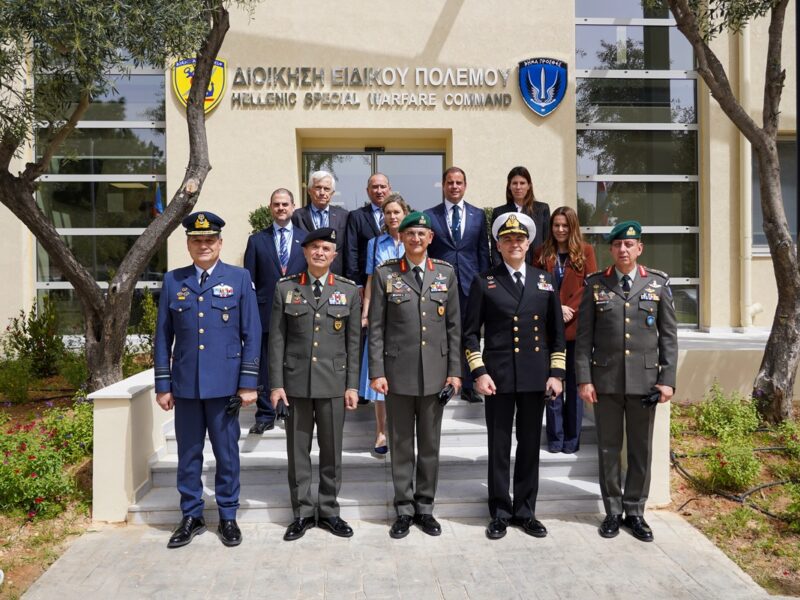In 1824 the Greek revolution was going through one of its worst years. It had almost degenerated and been consumed in local and not only civil wars among the Greeks.
At the same time, Sultan Mahmud II had decided to remove once and for all the thorn in the eye of the Ottoman Empire and suppress the Greek revolution.
For this reason, he requested the assistance of the governor of Egypt, the terrible Mehmet Ali, who incidentally had been born in Kavala, which was then an Ottoman region.
Mehmet Ali responded to the sultan’s proposal and sent his son Ibrahim with a powerful army and fleet to subjugate the rebellious Greece. And he had almost succeeded. The revolution was hanging by a thread.
In the Peloponnese, Ibrahim’s army left no stone unturned while the Egyptian fleet suppressed the revolution in Crete. Finally on June 12, 1824, just before all was lost, the Greeks imposed a temporary pause in their civil war and turned to the danger that threatened their existence.
In addition to the revolution that had to be suppressed in the Peloponnese and the islands, it also had to be defeated in the rest of Greece. For this reason Dervis Pasha campaigned against Central Greece with a huge army.
He set up his headquarters in Gravia and from there assigned his officers to carry out campaign operations against different revolutionary centers of the Mainland. Omer Pasha of Karystos undertook the campaign against Attica.
Omer Pasha began to drown Attica in blood, with a numerous army. At the same time, the Greek government caught up and placed chieftains with their military bodies in key parts of Central Greece, in order to harass him and, if possible, stop his progress.
One of these leaders was 33-year-old Yiannis Gouras. A four-legged man, a member of the Friendly Society who belonged to the team of the charioteer Panourgias and then to the team of Odysseus Androutsos.
Omer Pasha immediately implemented his plan and at the beginning of July he landed 3,000 men in Oropos, of which 2,000 were janissaries and the rest ordinary soldiers, cavalry and artillery.
The Ottoman force encamped in Kapandriti and began looting and terrorizing the area on a daily basis. Then Gouras, although he only had 600 men, decided to attack and not let Omer Pasha reach Athens.
On the evening of July 2 he made his will and in the morning he set out from the city of Athens to face the Ottoman army. He had with him the chieftains Prevezano, Mamouris and Roukis.
Gouras moved towards Marathon and camped on the wall that was on top of the hill in the plain. He was more than certain that Omer Pasha and his army would pass through. Set up a cartridge and wait.
On July 5, the Ottoman vanguard appeared. The day after the whole army arrived, Omer Pasha decided to disperse the small group of “Giavoris” who were blocking his way to the city of Athens.
After a short bombardment of the wall which was the Greeks, the fearsome and formidable janissaries attacked (the janissary corps under Mahmud II was now in complete decline, yet joined the Ottoman army).
Debacle. The Greeks were not only not terrified by the sight of the janissaries but remained in their position and faced them. After a short battle the janissaries retreated and left the field.
Omer Pasha, saw that something was wrong and gathered the janissaries to talk to them and encourage them. He told them that they belonged to the most honored army of the Ottomans and reminded them of the exploits of the past (which, however, had passed forever).
During the break, Gouras also tried with fiery words to raise the morale of the Greeks. He reminded them that the battle they are fighting at that moment is taking place on the same soil where Miltiades crushed the Persians, two thousand years ago. He asked them to show themselves worthy of their ancestors and not hesitate at all.
Not many hours passed and the janissaries attempted a second attack against the wall. And she failed. They retreated again. In the following hours, one attack followed another. The Greeks held their positions stubbornly.
And then Dionysios Eumorphopoulos appeared, the commander coming with reinforcements from the Isthmus of Corinth. With the reinforcements coming the Greeks cheered up.
And not only did they recover. Yiannis Gouras, with his commander, Ioannis Roukis and his men, came out of the tambourine walls and rushed against the Ottomans in the open plain.
They lost it. Before they knew what hit them, they already counted 200 dead. Among them is Ibrahim. The leader of the janissaries. Omer Pasha’s troops retreated disorderly, leaving rich loot on the battlefield.
After the battle and while the excitement and adrenaline were at their peak, Gouras cuts off the heads of 30 Ottoman soldiers and sends them to Athens. Along with two war-bairaks from Omer’s army who had given up running for their lives.
Omer Pasha with those who were saved by his army, ran back to his camp at Kapandriti and was buried. Gouras with Evmorfopoulos returned to Athens and immediately asked the aldermen to declare conscription.
He wanted to gather more troops to strike Omer Pasha once and for all. In a few days, 2,000 men gathered and immediately they all started for Kapandriti.
Katsimidi was captured and the Greeks set up camp opposite the Ottomans. Everything was ready for the final attack. And the omens were good. Enthusiasm and prudence among the Greeks, broken morale among the Ottomans.
And while all was ready, news came to the camp of the Greeks that aborted the attack. Regular Ottoman army with 8 thousand soldiers had started from Lamia and was coming to Athens.
Gouras ordered the camp to be sacked and returned to the city to organize its defense…


